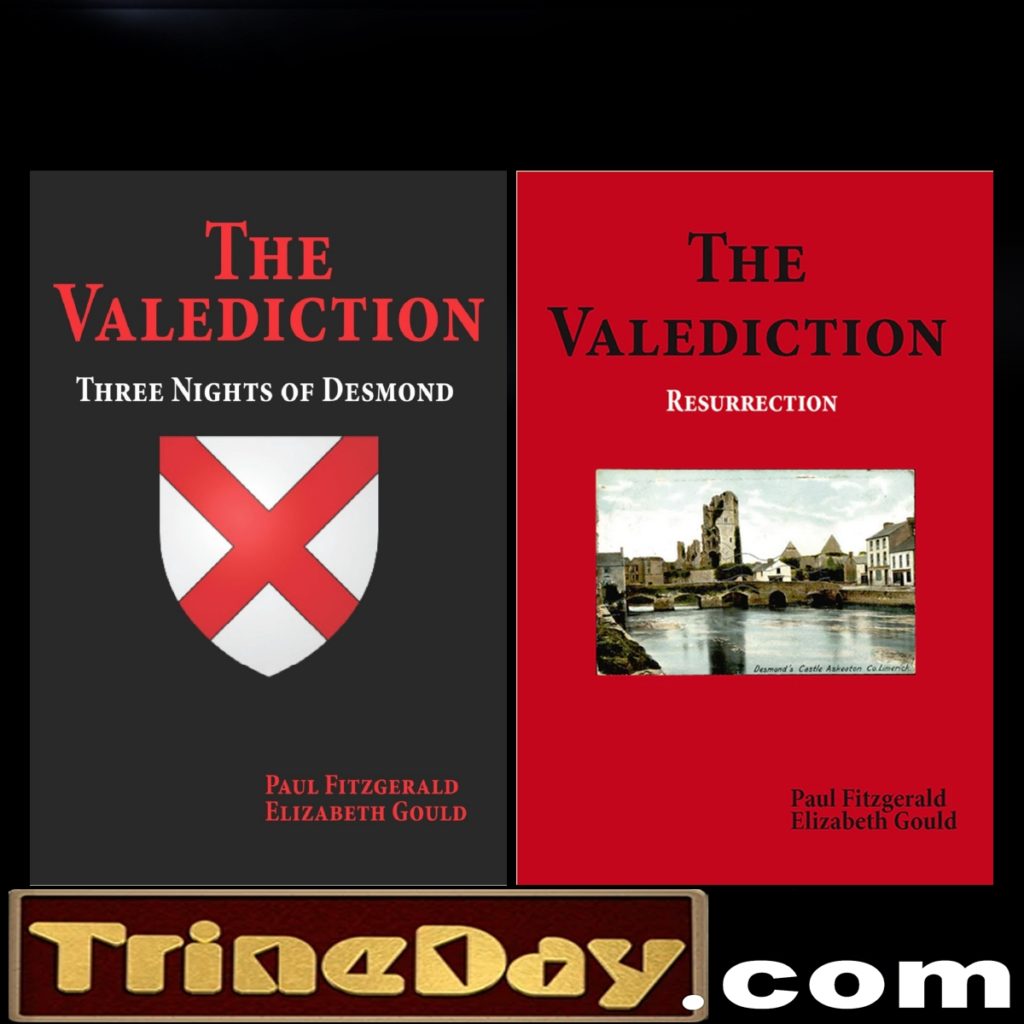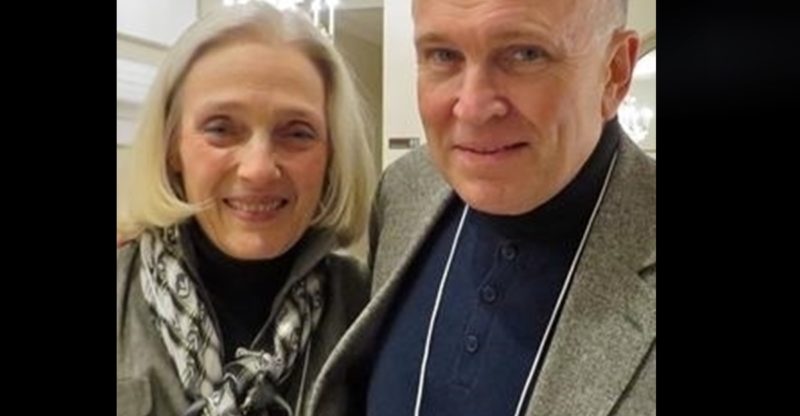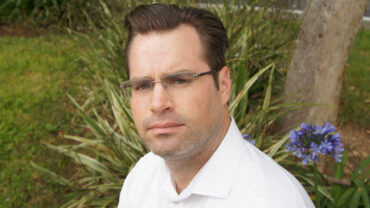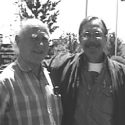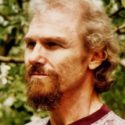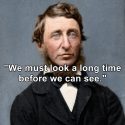The Journey 93. Paul Fitzgerald & Elizabeth Gould: JFK and Narrative Control
Publisher RA “Kris” Millegan talks with Paul Fitzgerald and Elizabeth Gould about JFK (his peace agenda and assassination), the neocons who hijacked narrative control in the 1970s, the “us versus them” narrative (that must be transcended), and their two-book novelized memoir, “The Valediction.”
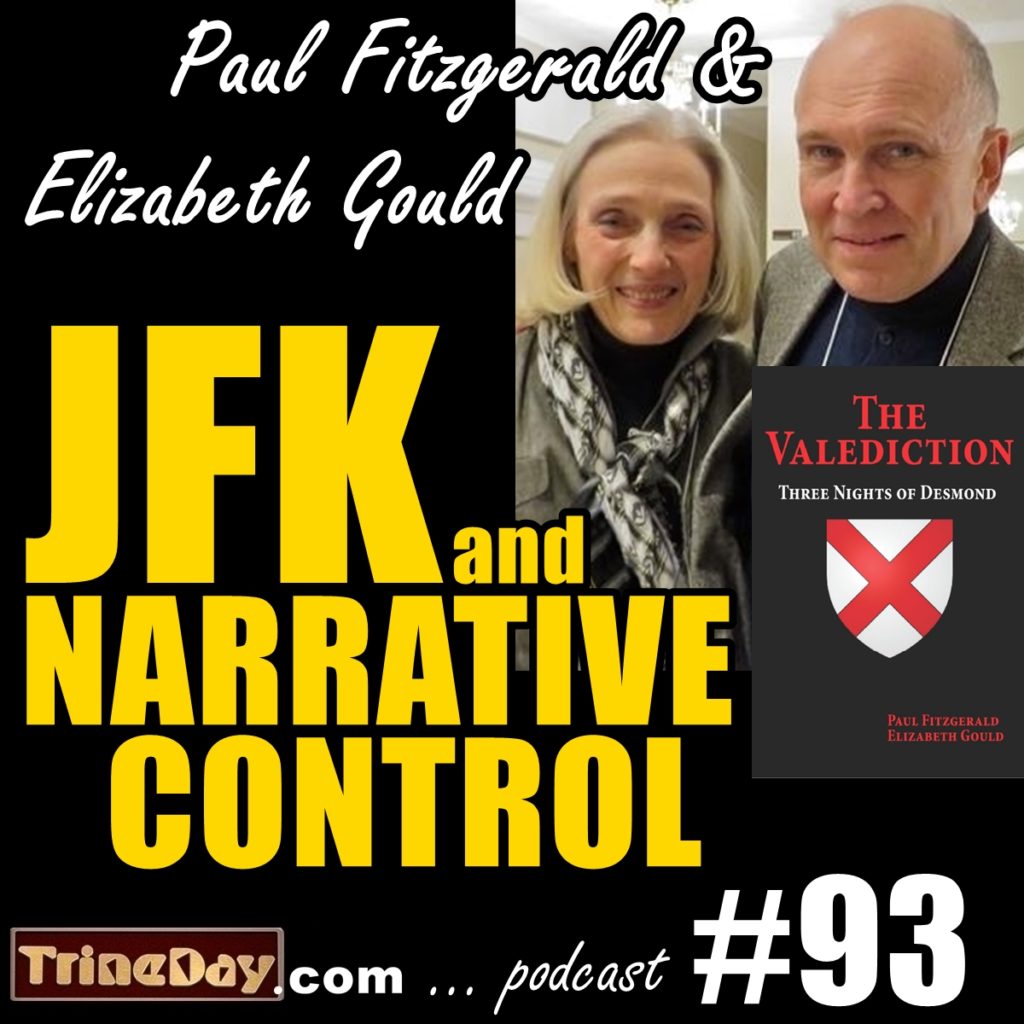
Kris: Thank you all for coming on. You know, I guess you guys sent me an email. That’s, that’s how we met. How did you hear about TrineDay?
Liz: That goes back to Carol Brouillet in 2004, when she invited us to her 9/11 conference and you were there right there. We got many of your books.
Paul: We have lots of your books.
Liz: Lots of your books, long before we started working with you. We have a pile of your books, I should say.
Kris: Part of this journey has to do with my proverbial talk with my father that I didn’t understand many years ago. But I kept looking and I found some stuff that kind of makes some sense. So I went out there in this conspiracy theory world, and like I’ve said many times, one of the first things I learned in conspiracy theory land was that a conspiracy theory didn’t have to be true to have some effect in the world.
When I first went out there, there were very few people I could talk to. They think you’re crazy. You’re a conspiracy theorist. As time went on, I found some people that I could talk to. Generally, they were people that had a wide view.
I’d always thought there was something hinky with the JFK assassination. I’d been reading about that before my daddy told me anything. Then I was looking into CIA drugs and all this kind of stuff. And then 9/11 happened. 9/11 really [made] a lot of people look into what’s behind the curtains. Looking into to these things.
Especially because the JFK assassination, you know – I got pulled out of class, got put on the street to sell newspapers. Only twice was I put on the streets selling newspapers. Once when JFK was shot. And then a couple days later when Oswald was shot. A whole bunch of us were sitting in front of a TV in shock and in trauma and watched a gentleman get murdered. On TV. That’s very traumatic.
And just like a person can be affected by quote unquote mind control … they have very specific things where they do trauma to split the person’s personality – the JFK assassination wasn’t just some people that didn’t like the president and wanted to get rid of him. It was a psychological warfare hit against our country. Against the American population. And it’s had a tremendous effect. A tremendous effect.
I can just say kudos to you [for continuing] to talk about JFK’s peace initiatives and what a different world we would live in if he had not been shot. I really appreciate what you’re bringing to the table.
Paul: Thank you for helping us bring it to the table.
Liz: JFK’s famous American university speech, his peace agenda, is so inspiring to this day. What we’re trying to do is bring it back. We’re going to do it.
We first started in the Afghanistan story, back in the early 1980s, trying to warn people about the propaganda that was being created about what was really going on. And in fact, when 9/11 [happened], we were bored. And it was like, “Of course, this was going to happen.” We knew something like that was going to happen. And you know, when it first opened up, you know, we really had this sense of excitement.
People were so in need of information and we were being overwhelmed with requests [to present our 1981 documentary about Afghanistan] where people would look at it and say, “Why didn’t we ever see it? Where was it?” I said, “Well, they didn’t want you to see it.”
Paul: People would stand up and say, “How come I didn’t know about this?” Unless you get the mainstream media [hammering something] on a daily basis, seven nights a week, night after night after night, telling you this is what’s important to listen to, people are too busy [to look for a different version of events].
Liz: But that’s really what our whole revelation was in realizing that our job was not to actually try and take down their narrative. Our job was to try and figure out what was really going on. And that’s what took 40 years, to write “The Valediction,” because you just can’t do something like that in a quick turnaround.
Paul: You know, Kris, what happens is, you talk to so many people over the years, you have so many conversations with so many people, you get a level of understanding about what’s really going on. You get a nuanced approach to it. Life, in general, doesn’t give you nuances. You just don’t have that kind of opportunity to sit and talk to people, that we’ve had, the opportunity that Afghanistan gave us, the opportunity to talk about this sort of thing. And they take [the media’s version of things] for granted.
